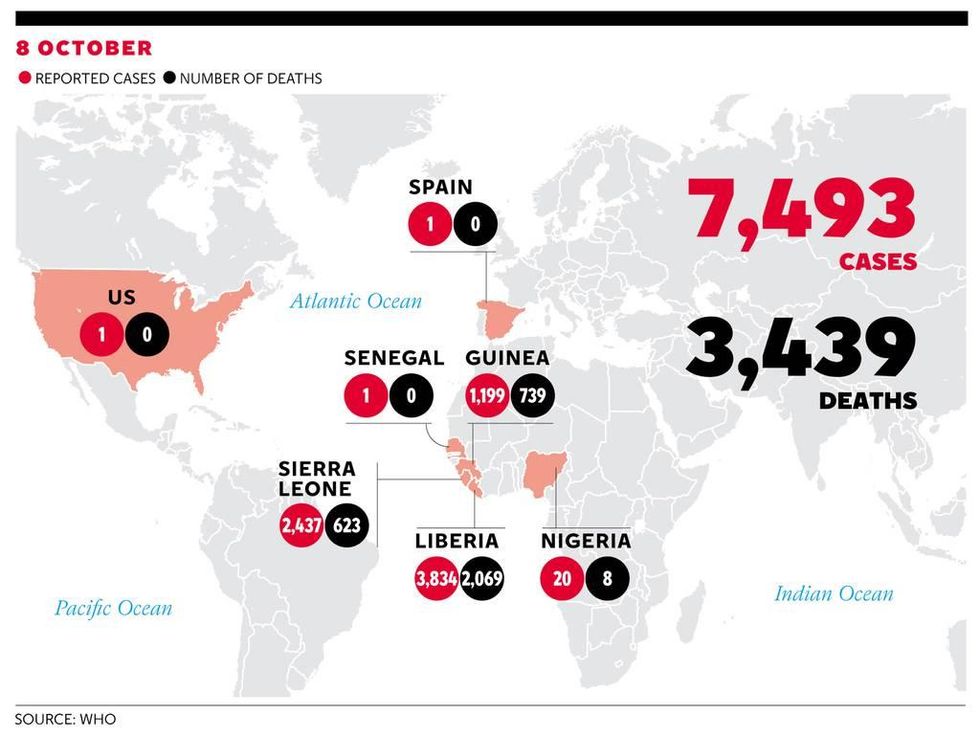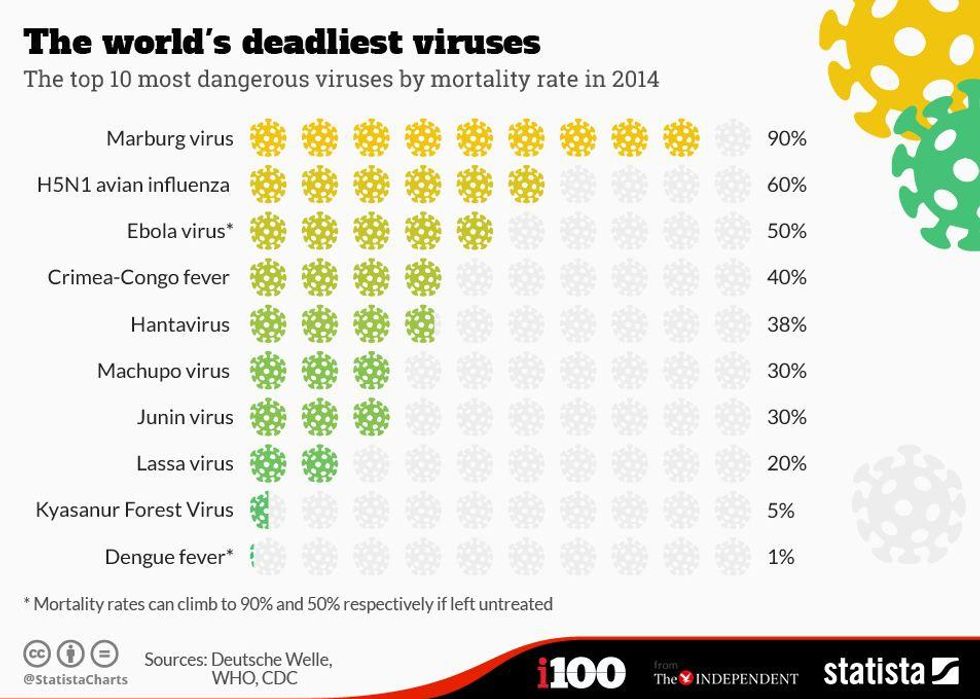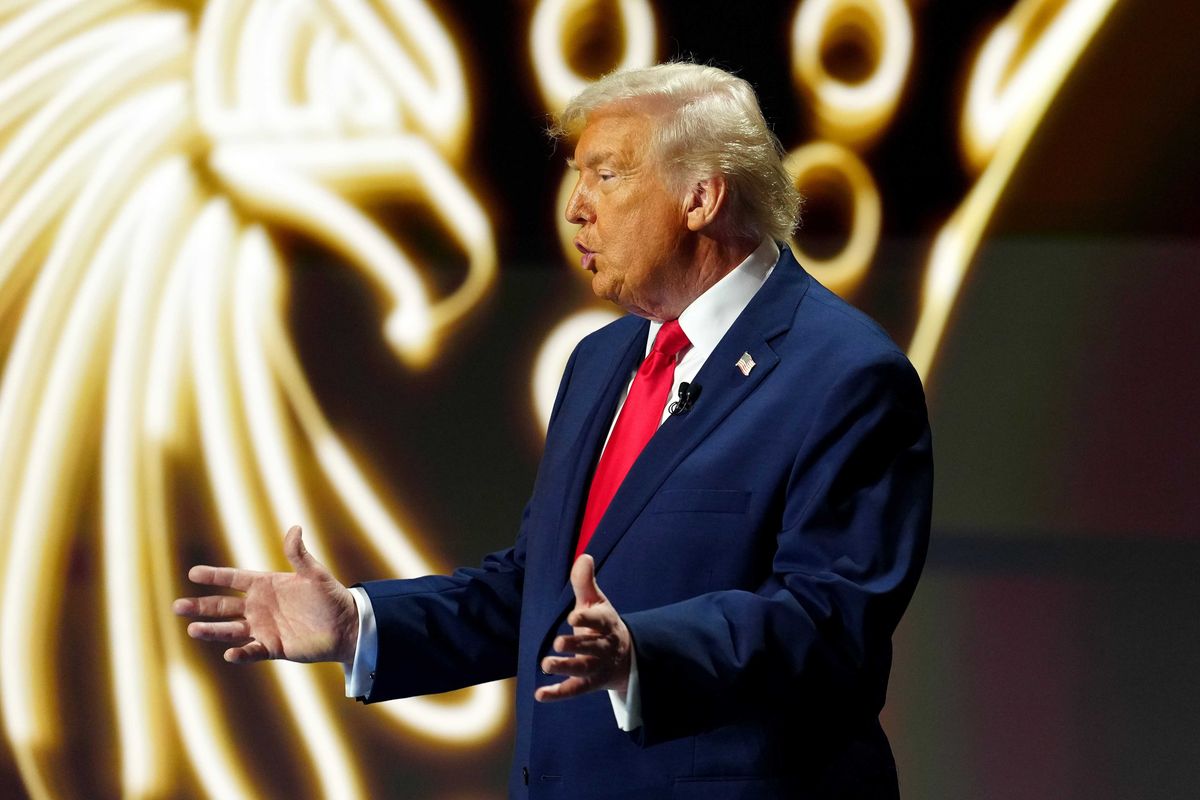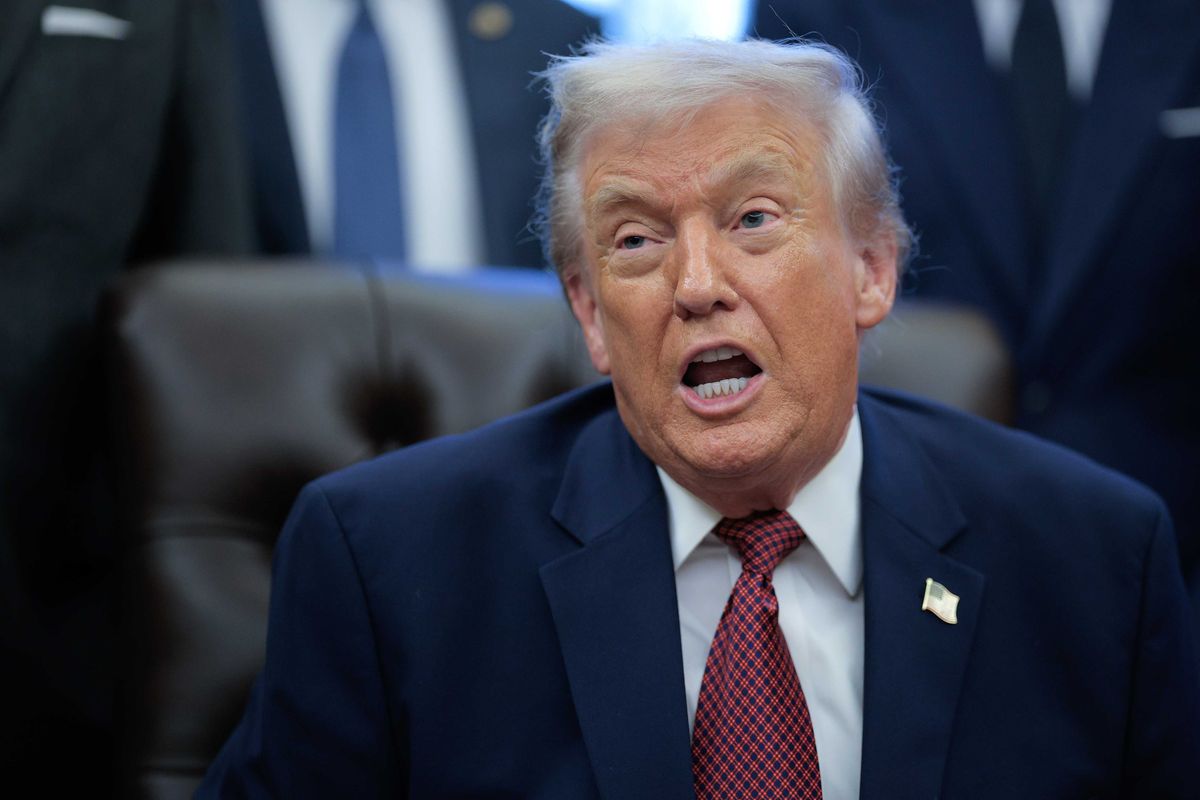News
Evan Bartlett
Oct 08, 2014
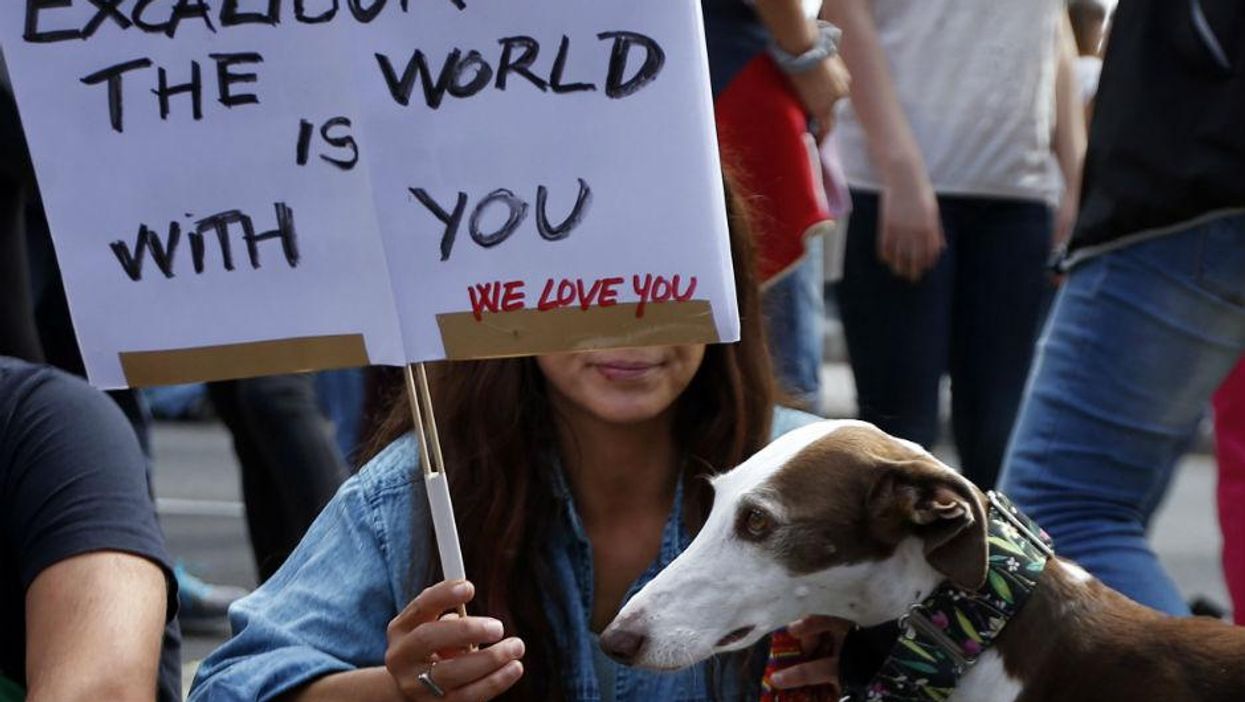
The world's biggest-ever outbreak of the Ebola virus has killed more than 3,400 people and has now spread from its source in West Africa with new victims in Europe and North America.
Here's everything you need to know about the latest developments:
Ebola's European victim(s)
Teresa Romero Ramos, a Spanish nurse's assistant, became the first person to contract the disease outside of Africa. She had been treating a priest who had been working as a missionary in Sierra Leone where he caught the virus.
Mrs Romero is now being treated in Madrid, while her husband and three other people have been placed under quarantine.
The nurse's assistant initially said she had no idea how she could have contracted the disease but reports on Wednesday revealed she may have touched her face while wearing protective gloves she had used while treating the priest.
#SalvemosAExcalibur
Spanish authorities ruled that Mrs Romero's dog, Excalibur, should be put down for fear of it spreading the virus despite health experts being unsure if Ebola can be transmitted from dogs to humans and the fact that the pet was not actually diagnosed with the disease.
In response, over 300,000 people signed a petition calling for the ruling to be overturned and animal rights protesters have clashed with police outside her home.
Spanish newspaper El Mundo claimed that Excalibur had been put down, but later changed the headline of the story to "Where is Excalibur?" amid confusion around his fate.
America's first victim has died
Thomas Eric Duncan, a Liberian man who had flown to Dallas to visit family, passed away at hospital on Wednesday.
A hospital spokesperson said: "He fought courageously in this battle. Our professionals, the doctors and nurses in the unit, as well as the entire Texas Health Presbyterian Hospital Dallas community, are also grieving his passing."
Virus continues to ravage West Africa
The outbreak has been centred on five countries - Liberia, Guinea, Sierra Leone, Senegal and Africa's most populous nation, Nigeria (which has since been declared Ebola free). Over 3,400 people have now died from the virus with 7,400 infections reported.
Officials from the World Health Organisation fear the number of infections could reach 20,000 by the end of November if efforts to fight the virus are not stepped up.
Cost of Ebola could top $32bn
A report by the World Bank has warned that the cost of the Ebola outbreak could reach $32.6bn (£20bn) if it spreads to other countries in West Africa. The economic impact in Liberia, Guinea and Sierra Leone is already serious but could become catastrophic if it is not stopped.
Pharmaceutical companies resorting to untested drugs
With the spread of Ebola continuing unabated, pharmaceutical companies have started using brincidofovir, a drug that have never been tested on people with the virus, according to the New York Times.
As this chart from Statista shows, Ebola is one of the deadliest viruses in the world and drugs companies are running out of options for treatment.
Brincidofovir was being used on the patient who flew from Liberia to Dallas as well as an NBC cameraman who caught Ebola while working in the same West African country.
Meanwhile, in Manchester
A nine-year-old boy from Sierra Leone has had his place at a school in Manchester cancelled after other parents expressed concern that he might spread Ebola.
The boy, Kofi Mason-Sesay, who has dual British citizenship, was given a complete all clear by Public Health England when arriving in the country.
His mother, who is the director of a charity believes the school's board have been bullied and swayed by "misguided hysteria".
Meanwhile, in conspiracy land
The Illuminati is (obviously not) behind the spread of Ebola because it was "predicted" on the Simpsons in 1997, according to, er, this guy.
More: Is Liberia really trying to prosecute a man with Ebola?
Top 100
The Conversation (0)
